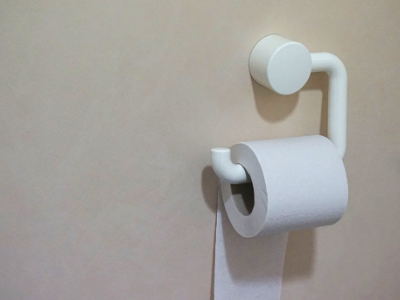 You’ve seen the debates on which way to hang the toilet paper, but did you know there’s a right and wrong way to USE the toilet paper?
You’ve seen the debates on which way to hang the toilet paper, but did you know there’s a right and wrong way to USE the toilet paper?
Many people don’t even know that there is a right and wrong way to wipe after going to the bathroom, but the correct wiping technique is important in preventing infection and keeping all areas clean. There is a special technique for wiping post-bathroom business, especially for females.
“I always tell my female patients to wipe front to back to avoid fecal contamination of the urinary system,” says Dr. O’Connor, a Colon and Rectal Cancer Surgeon. “For men, it really doesn’t matter, but wiping front to back makes it easier for them to fully clean the area.”
So, what’s the real danger if you don’t follow the wiping rules?
Wiping incorrectly can cause a Urinary Tract Infection (UTI), which is an infection of the kidneys, bladder, ureters or urethra. A UTI typically occurs when bacteria that live inside the bowel find their way into the urinary tract through the urethra.
Escherichia coli, or E. coli, is a bacteria normally found in the intestines/digestive system and causes 85 percent of UTIs.2 If you are wiping from back to front, you are most likely spreading that bacteria from your rear end up to your urethra, setting yourself up for a UTI.
Thanks to anatomy, women are especially susceptible to UTIs. Women have a shorter urethra than men do, which shortens the distance that bacteria must travel to reach the bladder. Also, a woman’s urethra is near the anus, where the E. coli bacteria live. About 50 to 60 perfect of women will develop a UTI during their lifetime, and they are one of the most frequent clinical bacterial infections in women, accounting for nearly 25 percent of all infections.
Urinary tract infections don’t always cause signs and symptoms, but when they do they may include:
- A strong, persistent urge to urinate
- A burning sensation when urinating
- Passing frequent, small amounts of urine
- Urine that appears cloudy
- Urine that appears red, bright pink or cola-colored — a sign of blood in the urine
- Strong-smelling urine
- Pelvic pain, in women — especially in the center of the pelvis and around the area of the pubic bone
If a UTI spreads to the kidneys or into the bloodstream, it can cause serious medical problems. This is why it is important to visit your doctor if you are showing any signs or symptoms of a urinary tract infection.
As far as preventing UTIs, Dr. O’Connor says, “It’s all in the way you wipe.”
Be sure that you are always wiping front to back, never reusing the same paper for more than one wiping motion, and to never let your hands/fingers make skin contact during the process.
Dr. Lynn M. O’Connor dedicates her practice to providing the foremost treatment, technology, and information related to preventive public health issues and colon and rectal health. An outstanding surgeon and health advocate, Dr. O’Connor is also the Director of the Women’s Colorectal Care Program for ProHEALTH Care Associates in the Greater New York City area. Click HERE to contact Dr. O’Connor’s office, or to schedule an appointment.
This blog provides general information and discussion about health, medicine, and related subjects. The content provided in this blog, and in any linked materials, are not intended and should not be construed as medical advice. If you have a medical concern, you should consult with a licensed physician or appropriate health care worker. If you think you may have a medical emergency, call your doctor immediately. The views expressed on this blog and website have no relation to those of any health care practice, hospital, or other institution with which the author is affiliated.

